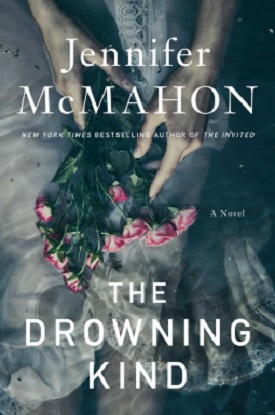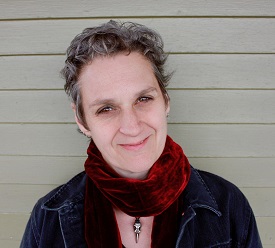 Synopsis:
Synopsis:
The Drowning Kind is a chilling story about a woman who returns to her family home after her older sister mysteriously drowns in the swimming pool . . . but she’s not the pool’s only victim.
Be careful what you wish for.
Jax is a social worker living in Seattle. When she receives nine missed calls from her older sister, Lexie, she assumes that it’s just another one of her sister’s episodes. Lexie has grown manic and increasingly out of touch with reality, pushing Jax away for over a year. And, truthfully, Jax has distanced herself emotionally from Lexie and ignored many of her calls, wanting to extricate herself from Lexie’s issues.
But the next day, Lexie’s body is discovered in the pool at their grandmother’s estate. Jax arrives at the house to go through her sister’s things and discovers that Lexie was researching the history of their family and the property. As she reviews Lexie’s research and frenetic notes, she finds that the property’s past is much darker than she ever imagined.
In 1929, thirty-seven-year-old newlywed Ethel Monroe hopes desperately for a baby. In an effort to distract her, her physician husband whisks her away on a trip to Vermont where a natural spring with restorative and healing properties is showcased by the newest and most modern hotel in the Northeast. Once there, Ethel learns that the water is rumored to grant wishes. But she doesn’t suspect that the spring takes in equal measure to what it gives.
The Drowning Kind is a haunting and twisty ghost story exploring how the past, though sometimes forgotten, is never really far behind us.
Review:

Jennifer McMahon is the bestselling author of nine novels, including Winter People, The Night Sister, and The Invited. She was dubbed “the literary descendent of Shirley Jackson” by author Chris Bohjalian. The Drowning Kind is an absorbing ghost story about sisters who are compulsively drawn to a unique pool . . . in which several before them have died. McMahon relates that she maintains an idea box that’s stuffed with index cards and scraps of paper. She says that the inspiration for The Drowning Kind was nothing more than a note card that read, “A story about the spring fed pool I visited with Grandma – the owner said it was bottomless! Black water, freezing cold and terrifying! What might have been down there?” Her research for the book consisted of her memories of visiting a pool as a child that she found “very creepy” reading about resorts, spas, what life was like in the early 1930s Vermont and New England.
The water is a character in its own right and the centerpiece of the tale. Measuring twenty by forty-five feet, the pool is surrounded by granite. It is spring fed with no pump, and an outlet at one end that drains into a stone-lined canal snaking across the yard to a brook below, and then on to a nearby river. The icy cold water is black and emits an odor akin to a combination of rot and sulphur, tasting like burnt matches and rust. The pool is situated on the grounds of Sparrow Crest, the estate in the tiny village of Brandenburg, Vermont, that once belonged to the grandparents of Jax and her older sister, Lexie. The girls spent summers with Gram when they were growing up, swimming in the pool but unable to find its bottom. Lexie insisted that Rita, Gram’s younger sister who drowned in the pool when she was just seven years old, was waiting for them down in the water. “She’s still here, you know. She lives in the pool. Haven’t you seen her down there? When you open your eyes underwater? She lives in the pool, but she comes out sometimes,” Lexie would insist just to torment Jax. Indeed, Gran said she felt close to her deceased sister when swimming in the pool. The girls loved playing The Dead Game, floating facedown together to see who cold hold the breath the longest, but never in front of Gram, who, according to Lexie suffered from agoraphobia. She grew up at Sparrow Crest, was married there, and raised three daughters on the property that she never left. She did not drive, and had groceries and household goods delivered, but she swam in the pool regularly, even chopping through ice in the winter to do so.
The key to understanding the present is to look at the past.
But as the story opens, the house belongs to Lexie. She inherited it from their grandmother, a point of contention between the sisters. Jax is a social worker living in Seattle. She has avoided the increasingly manic messages she has received from Lexie, confident that she is off her medication again. In her first-person narrative, Jax describes discovering nine messages from Lexie. “When she was off her meds, she forgot that we didn’t talk anymore. That we were not properly estranged.” The two had barely spoken in the year since Gram’s death. Angry and bitter because Gram bequeathed Sparrow Crest and most of her savings to Lexie, as well as money to Gram’s sister, Diane, Jax received an old coin collection and some first-edition books, even though she was the one struggling to pay off her student loans and living in a tiny apartment across the country. Jax came to rely upon Diane to keep her apprised of Lexie’s condition.
It is Diane who notifies Jax that when she went to Sparrow Crest to check on Lexie, at Jax’s urging, she found Lexie’s body in the swimming pool. And it is clear that, unlike just two weeks earlier when Diane observed that Lexie seemed to be doing well, judging by the state of the house, something was very wrong. Jax rushes home, leaving a colleague, Barbara, in charge of her clients, including nine-year-old Declan, a troubled boy who has just gotten situated in a school that seems to be a good fit.
Another first-person narrative is from Ethel O’Shay Monroe, the wife of Will, the local doctor. It is 1929 and Ethel desperately wants a child. She was thirty-six — “an old maid” — and Will was thirty-nine when they married the previous year. She watches Will interacting with the local children and sees what a wonderful father he would be, but every month brings disappointment. She has taken to employing various mystical ploys to get pregnant, including carrying a sparrow egg tucked against her breast. Ethel keeps a lot of secrets, including the fact that she self-harms when anxious or stressed. To ward off the horrible “things I saw in the dark but knew better than to speak of. Sometimes, to make them go away, I’d scratch myself with a in. Seeing the little red line, the tiny drops of blood, was a way to ward off evil. the scratches on my skin, hidden under dresses, they were secrets, too.”
The spring water that flows into the pool is believed by many to hold magical healing properties. So some people drink it, despite its horrible taste, and others believe that swimming in the pool will help them. Will takes Ethel away on a holiday to the newly-opened Brandenburg Springs Hotel and Resort for a romantic weekend. On the way, they stop at a small store where the proprietor is selling bottles of the spring water for five cents each, claiming it “has a funny taste, but it brings good luck and good health.” His wife warns, “Those springs are a dark place. You’d do best to keep away from them.” At the hotel, Ethel and Will swim in the springs, and Ethel is befriended by the owner’s wife, Eliza. She too talks about the water’s healing power, adding that there’s “more to it than that.” She claims that some people believe the springs are “a door between worlds” and the “water is a puzzle not to be solved.” She tells Ethel that the water “can grant wishes” and Ethel hopes that’s true — that the water will grant her wish for a child. Many of the locals believe, however, that the springs are cursed: “If you came to the water looking for a miracle, you had to be prepared to pay a price.”
Jax searches for clues as to how Lexie — a strong swimmer — could possibly have drowned. And examines the notebooks filled with Lexie’s research into Sparrow Crest’s history. Her entries descend from coherent curiosity into disjointed ramblings and then trail off. What secret did she discover? And could her death have been a suicide?
McMahon’s alternating narratives eventually provide the answers Jax seeks, coming together to form an atmospheric, dark tale of longing, disappointment, regret, and despair spanning generations. McMahon injects creepy, unexplainable developments involving the magical, mysterious water that flows through and complicates her characters’ lives.
Her portrayal of the relationship between Jax and Lexie is moving and poignant, with Jax relating the ways in which the two girls interacted as they were growing up and the point at which it became clear that Lexie needed help. Her anger at Lexie for always being, from Jax’s perspective, more popular and favored by family and friends, is raw, palpable, and believable, as is her grief over losing her sister. She observes, “Grief is a monster.” McMahon compassionately chronicles Jax’s journey from being disconnected from her family emotionally and geographically to understanding Lexie’s struggles and discoveries. Ironically, Jax shut Lexie out, building strong boundaries around herself, because she could not deal with the mental illness that led Lexie into wild, manic states. Jax’s own therapist pointed out, “You’ve never gotten over the fact that you couldn’t fix your sister when she got sick. You couldn’t save her, so you’re trying to save all these other kids.” But the bonds of sisterhood are far-reaching and unbreakable, as McMahon illustrates, with Jax’s guilt propelling her to uncover the secrets that Lexie learned as the story races to a shocking and disturbing conclusion that will undoubtedly infuriate some readers.
McMahon weaves legend and myth, truth and reality into a chilling and intriguing confection that moves at an even pace, complete with glimpses of ghosts in the pool, phone calls with either no one on the other end or only a quiet voice that sounds like it’s coming from far away, and wet footprints — of the dead? — leading from the open front door up the stairs. But McMahon says that the story is ultimately “about family and how far we’ll go for the ones we love most. Despite the supernatural elements, at it’s core, The Drowning Kind explores family ties, how we react to the legacy our ancestors have passed down to us, and if we are constrained and limited by our family history. And, as Jax puts it, whether a person can be too heartbroken by it all to walk away.



Comments are closed.